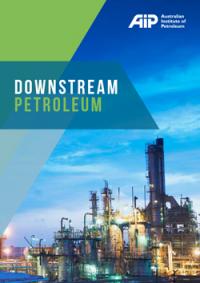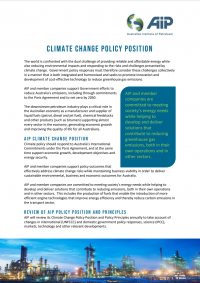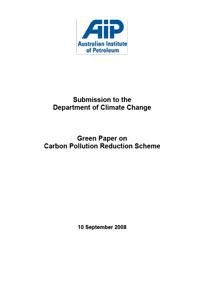Resources
Featured
Date
Description
A full list of AIP media releases. , MEDIA RELEASES 2023 A Good Health Report Card for the Australian Petroleum Industry MEDIA RELEASES 2021 The Colour of Australian Unleaded Petrol Grades is Evolving: AIP Technical Market Update MEDIA…
Date
Description
AIP produces a publication "Downstream Petroleum" on the state of the Australian downstream petroleum industry and its financial performance. The report provides a concise overview of recent developments in petroleum refining and marketing in Australia and the Asian region. The report highlights…Date
Description
Fuel prices around the world are largely determined by regional markets and the benchmark prices and government taxes applying in those markets.
Date
Description
AIP and member companies are committed to meeting society’s energy needs while helping to develop and deliver solutions that contribute to reducing greenhouse gas emissions, both in their own operations and in other sectors. We support Government efforts to reduce Australia’s emissions,…
Date
Description
AIP and its member companies actively participate in public consultation processes on climate change. For example, AIP and its member companies are participating in the process of public consultation on national climate change policy development, including on the range of issues associated with…Date
Description
There is an extensive range of Federal, State/Territory and Local government regulations and legislation applying to refineries and businesses operating in the downstream petroleum industry. Some of the key regulations are outlined below. Formal Price Monitoring On 17 December 2007, under…Date
Description
Australia has robust emergency response plans and arrangements Industry and governments fully recognise the potential impacts of a severe national shortage of fuel supplies to business and consumers. Australia has robust response plans for managing a national liquid fuel emergency, which…Date
Description
Relying on shipping (for imports) does not increase security risks, and shipping lanes are not easily disrupted. Most countries are reliant on movements of petroleum (crude and product) within and between countries, and particularly so for Australia (in both an export and import sense).…Date
Description
Self-sufficiency in transport fuels is not necessary for supply security Security of supply is the result of resilient and efficient supply chains and robust risk management – it is not about self-sufficiency or independence from markets. There are 3 critical elements of any strategy to…Date
Description
Transport fuel imports do not increase risk for supply reliability and security A diversity of global supply sources and local import facilities provide a range of options for Australia. Australia is already dependent on imports to meet the growth in demand for transport fuels (eg. demand…